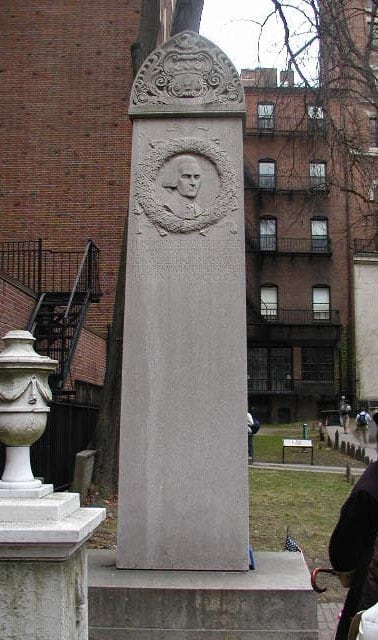John Hancock was a significant figure during the American Revolution. He and Samuel Adams were the main influencers in Boston shortly before the Declaration of Independence.
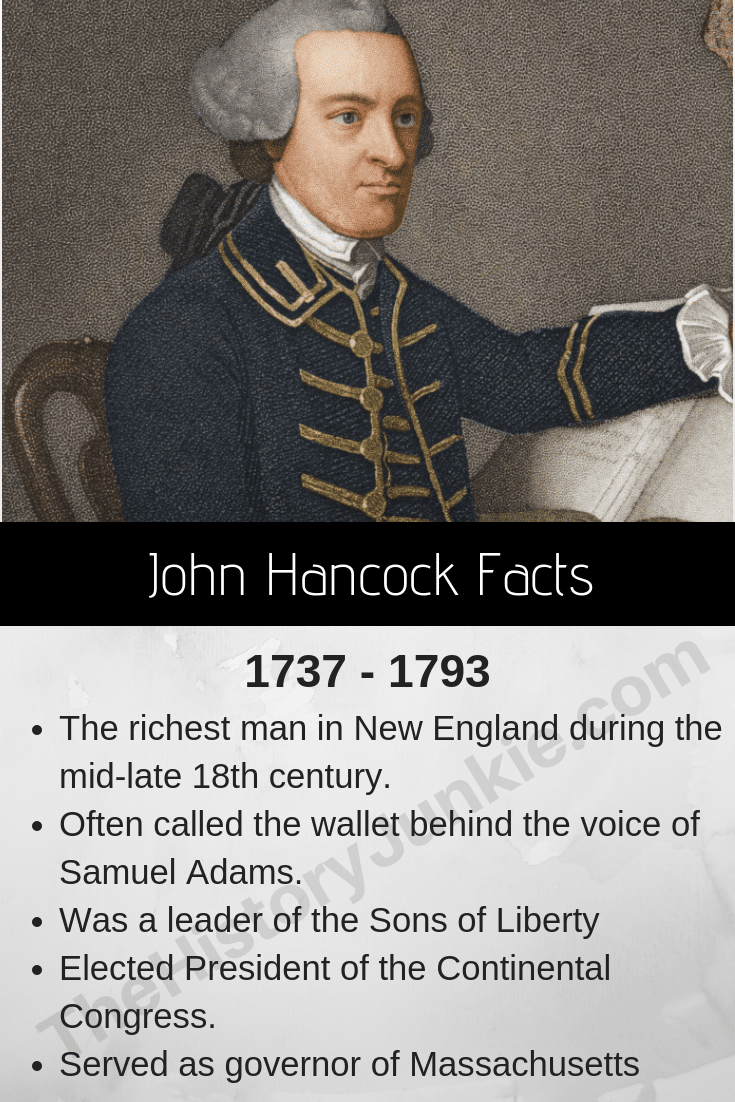
He would go on to serve as President of the Continental Congress and Governor of Massachusetts.
Jump to:
Early Life
John Hancock was born in Braintree, Massachusetts, to a minister. As a boy, he was a casual acquaintance with the young John Adams. His father passed away in 1744, and he moved to the home of his Uncle Thomas Hancock.
Thomas was a wealthy merchant who imported manufactured goods to Britain and exported goods such as rum, fish, and whale oil. Thomas would be an influential figure in his nephew's life.
Hancock went to the Boston Latin School and eventually Harvard College. After graduating, he rejoined his uncle Thomas and began to learn more about his business.
Thomas had relationships with every royal governor in Massachusetts and was well-connected throughout. John learned much from him during this time, and Thomas prepared him to take over his business when he was gone.
Early Career
John moved to England from 1760-1761. Here, he met and built relationships with other suppliers, customers, and other businessmen.
He soon went back to Boston and gradually started to take over his uncle's business since Thomas' health was failing.
When Thomas died, John inherited everything, making him the wealthiest man in New England. This wealth would aid the rebellion.
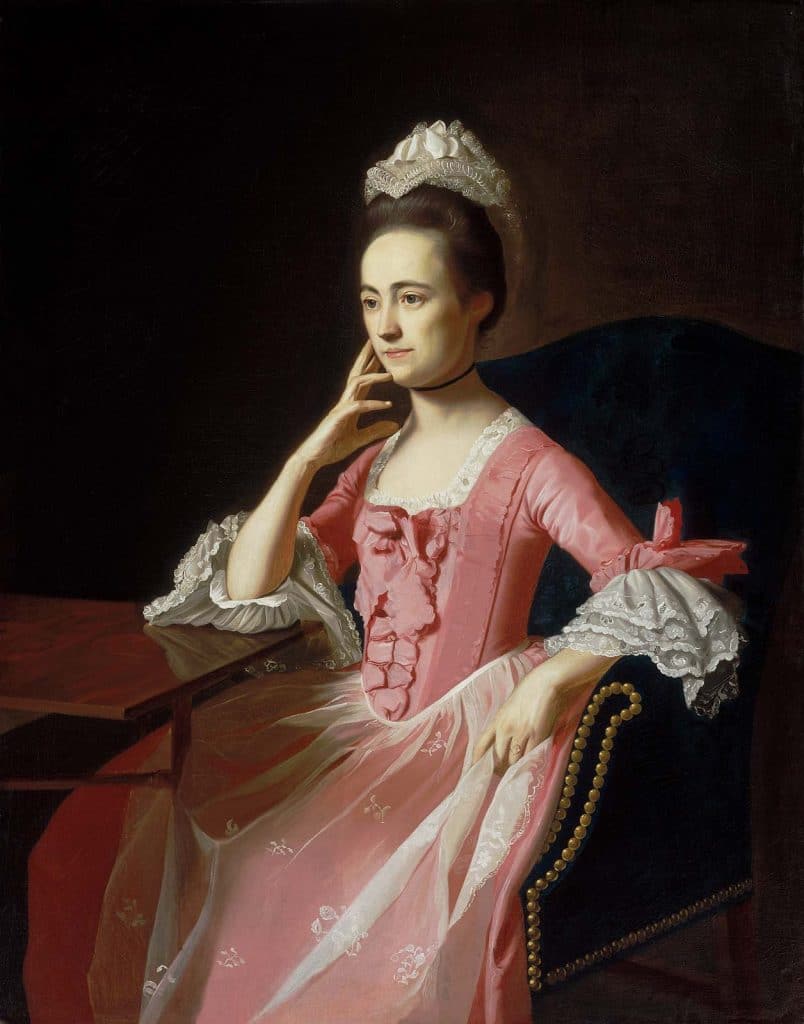
John Hancock married Dorothy Quincy in 1775. The two of them had two children, but neither survived to adulthood. She was known as a great hostess.
John Hancock's Pre-War Activities

John Hancock is usually noted for his resistance to the Stamp Act, Townshend Acts, and Intolerable Acts, but what many miss is why he opposed them.
Men like Samuel Adams and James Otis opposed the taxes on constitutional grounds; however, Hancock opposed them on economic grounds.
He did not believe that they were good economic policies and that the tax on specific goods would actually hurt the colonial economy.
One can be sure that he was protecting his own interests since he was a wealthy merchant, but he was a believer in the free market and did not like government involvement, whether it be British or colonial, within it.
One cannot speak of John Hancock without also speaking of Samuel Adams. The fate of these men was connected.
Without Samuel Adams, Hancock would have never gained much influence in the political realm, and without John Hancock's inherited wealth, Adams would have never ascended.
Although they were connected, the two could not be more different. Samuel Adams was a Puritan who lived modestly and did not fuss over possessions. Hancock lived extravagantly and enjoyed a life of luxury.
Battles of Lexington and Concord
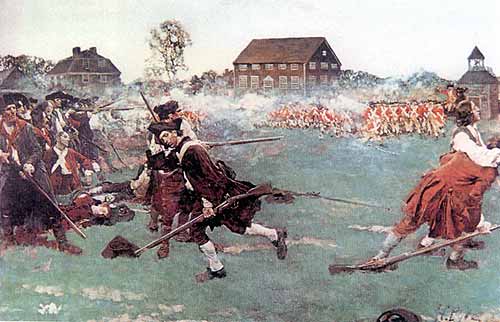
During the midnight ride of Paul Revere, Hancock and Adams were in Lexington at the Hancock-Clarke parsonage awaiting a message from Paul Revere or William Dawes.
When the couriers arrived and gave Adams and Hancock the message of the British march, Hancock was reluctant to leave.
It took some convincing from Adams to get Hancock to leave. He wanted to stay and fight, but Adams convinced him that he could better serve his country outside the military. He then fled.
Shortly before the battles of Lexington and Concord, Hancock was unanimously elected as President of the Second Continental Congress. He was a solid choice for this position for a couple of reasons. He was wealthy, so many of the moderates could be influenced by him.
His close ties to many radicals meant that the radicals in the Continental Congress liked him. He also had experience mediating for legislative bodies.
This is primarily what his responsibilities were. Outside of dealing with paperwork, his main job was mediating the debate on the floor.
John Hancock during the Second Continental Congress
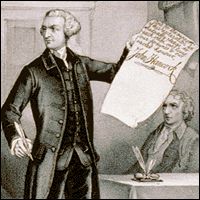
Tradition suggests that John Hancock believed that he was to be nominated by John Adams to be commander-in-chief of the Continental Army.
This would have been unwise since Adams was a Massachusetts man and Hancock did not have the military experience necessary to lead an army.
However, Adams himself said later in life that Hancock was disappointed when he nominated George Washington instead of him.
If that were the case, then Hancock did an exceptional job hiding it. He supported Washington by word and deed.
It is said that when the Declaration of Independence was signed, John Hancock wrote his name large so King George could read it without his spectacles.
That story is most likely not true and did not surface until later. However, that story has become folklore and has coined the phrase "put your John Hancock on this," meaning "put your signature on this."
What really happened is that John Hancock was the first and only to sign the treasonous document before anyone else. The document was then sent to George Washington, who read it in front of the troops.
There was actually no ceremonial signing on July 4, 1776. Rather, the delegates were coming in and out all summer to sign the document. Congress approved the wording of the document on July 4, but it was not signed by all the delegates until August 2 or after.

John Hancock after the American Revolutionary War
Hancock was elected as governor of Massachusetts in 1780 and was easily re-elected for a second term. He took a hands-off approach to the government and did not stick his neck out on any controversial issues. He surprised many by resigning in 1785, citing his failing health.
John Hancock, although very ill, helped ratify the Constitution. He gave a stirring speech, which was the first time that he and fellow patriot Samuel Adams agreed in a while, which probably tilted favor to the ratification of the Constitution.
The ratification passed by a narrow margin, but it did pass, largely due to Hancock and Adams' efforts.
The Death of John Hancock
John Hancock died on October 8, 1793, with his wife by his side. On the day of his death, Samuel Adams declared it to be a state holiday.
His funeral was lavish and expensive. It was most likely the most expensive funeral Massachusetts had ever seen at that time.
